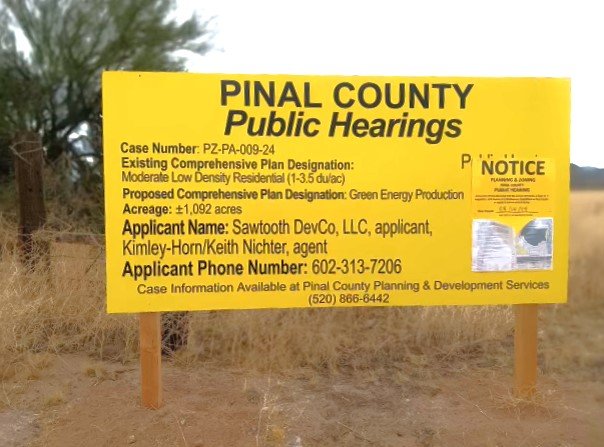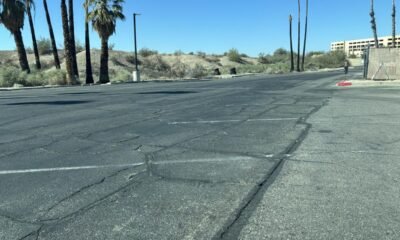Business
City Planners Rally Against Solar Farm Zoning Plan

The City of Maricopa has formally objected to a proposed amendment to Pinal County’s comprehensive plan that would permit the rezoning of land for a solar farm in Hidden Valley. The city filed its objections with the Pinal County Community Development department in August, citing concerns over the project’s potential impacts on future residential developments and green spaces, including parks and recreational trails.
Officials from the City of Maricopa expressed that the county’s proposed “Green Energy Production” designation does not align with the city’s General Plan, which lacks a comparable land use classification. In communication with Planning Manager Gilbert Olgin, city planners highlighted these discrepancies.
A public hearing held by the Pinal County Planning and Zoning Commission took place today in Florence, focusing on the proposed comprehensive plan amendment necessary for the solar farm’s advancement. Copia Power, the company behind the project, plans to develop nearly 1,100 acres of land in Hidden Valley, with expectations to begin operations by mid to late 2029.
Jordan A. Rose, an attorney representing Copia Power, defended the project’s suitability for the area. He noted its minimal environmental impact, claiming it would generate enough clean energy to supply 95,000 homes while requiring little traffic or water resources. The anticipated investment for this endeavor could exceed $500 million.
Meanwhile, the solar farm initiative, proposed by Sawtooth Development Co. on behalf of Hidden Valley Ranch Partners, is still in its early planning stages with Pinal County. The project aims to change the land use designation from low-density residential to green energy production, a process that the county considers only once a year.
In 2008, Pinal County supervisors approved the Hidden Valley Planned Area Development, which envisioned 3,874 single-family homes, two elementary schools, commercial and office spaces, road infrastructure, and extensive open spaces spanning over 210 acres. Maricopa city planners assert that the proposed amendment is inconsistent with the existing land use designations and would fail to increase housing stock or meet significant infrastructure needs in the surrounding area.
The city outlined its belief that the new land use would not foster substantial long-term job creation and could undermine existing commercial and employment opportunities within the region.








![Top left: Judge Stephen F. McCarville. Top right: A restraining order on a judge's bench. Background: Maricopa Municipal Court. [Bryan Mordt/City of Maricopa/Pix4free]](https://arizonanews.org/wp-content/uploads/2025/06/City-Faces-Surge-in-Restraining-Orders-Outpacing-Population-Growth-400x240.jpeg)
![Top left: Judge Stephen F. McCarville. Top right: A restraining order on a judge's bench. Background: Maricopa Municipal Court. [Bryan Mordt/City of Maricopa/Pix4free]](https://arizonanews.org/wp-content/uploads/2025/06/City-Faces-Surge-in-Restraining-Orders-Outpacing-Population-Growth-80x80.jpeg)







